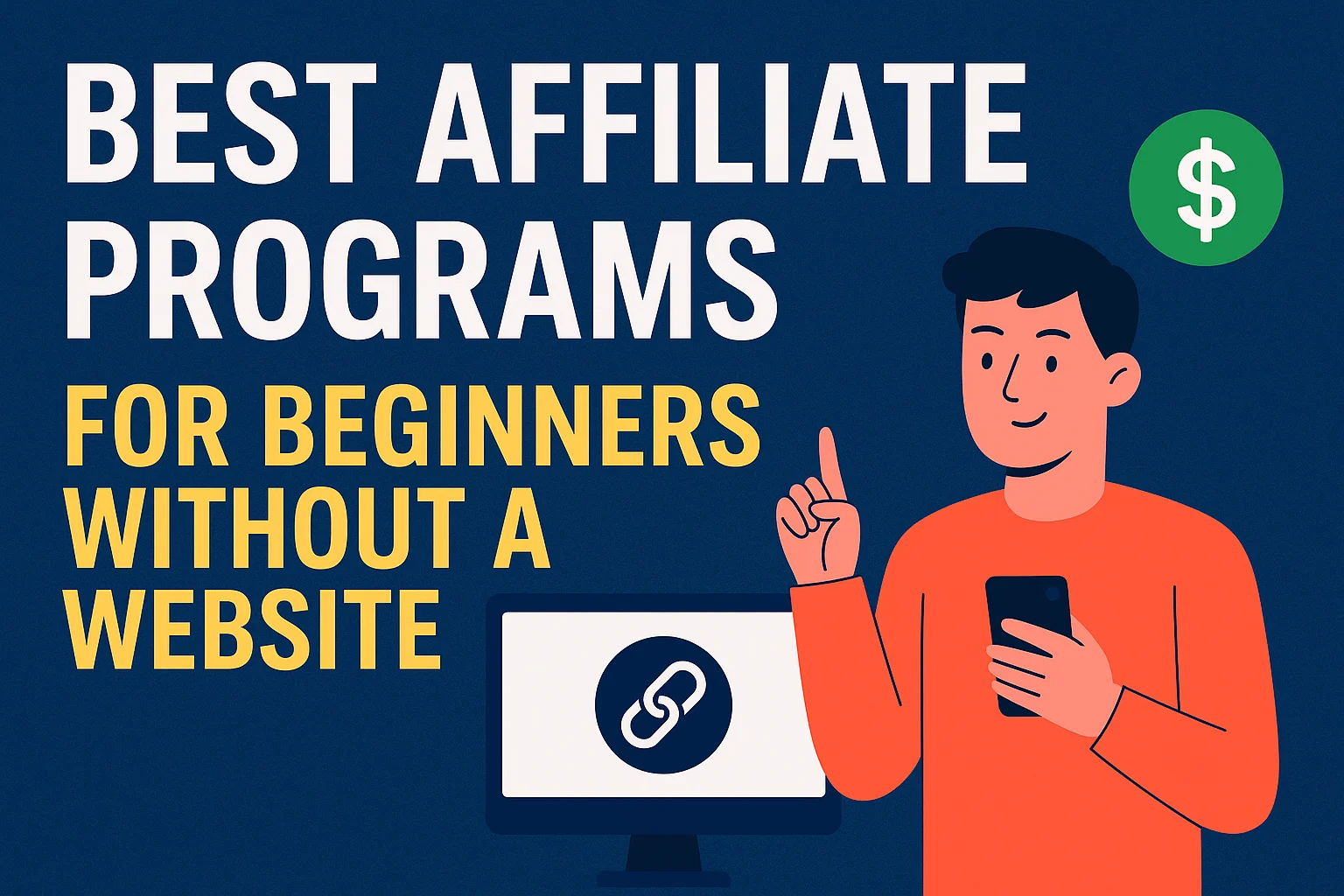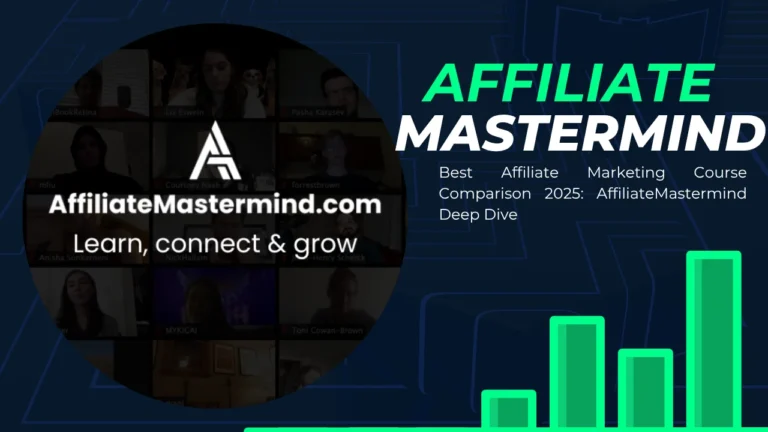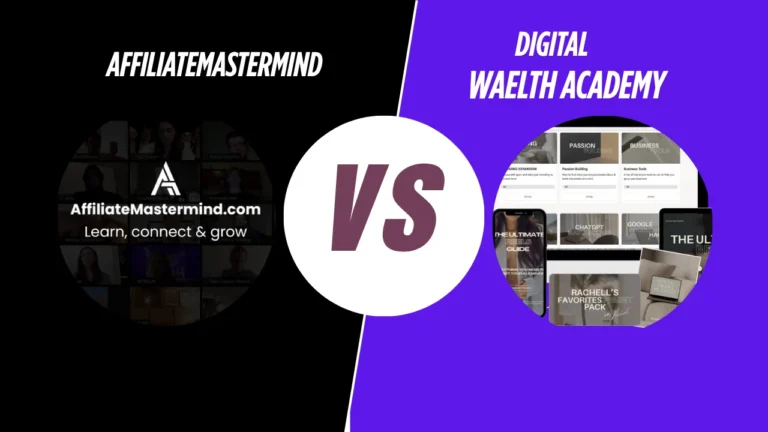
Introduction
Starting out in affiliate marketing can feel challenging—especially if you don’t have a website. Luckily, there are plenty of best affiliate programs for beginners without a website that make it easy to earn commissions using just social media, email, or other platforms. In this guide, we’ll break down the top programs and what to look for so you can jumpstart your affiliate journey with confidence.
Table of Contents
Commission Structure
When looking for the best affiliate programs for beginners without a website, understanding the commission structure is key. This determines how much you’ll earn every time someone makes a purchase through your affiliate link.
There are two main types of commissions to know:
- Flat-rate commissions – You earn a fixed amount per sale. For example, promoting a digital product might give you $50 per referral, regardless of the product price.
- Percentage-based commissions – You earn a percentage of the total sale. This is common in eCommerce and SaaS affiliate programs. For instance, if you refer a customer who spends $200 and your commission rate is 20%, you earn $40.
Some of the top affiliate programs without a website also offer recurring commissions. This means you get paid every month as long as the customer keeps using the service. This is common with tools like email marketing platforms, hosting services, and subscription-based software.
Pro Tip: Beginners should look for programs that offer high-percentage or recurring commissions. This way, even if your audience is small (like on TikTok or Instagram), a few conversions can still generate meaningful income.
Ease of Approval
One of the biggest challenges beginners face is getting accepted into affiliate programs—especially if they don’t have a website. Luckily, many of the best affiliate programs for beginners without a website are beginner-friendly and have minimal requirements.
Some affiliate networks and programs automatically approve new affiliates, while others may review your application manually. Programs that don’t require a website typically allow you to use social media profiles, YouTube channels, or email lists instead.
When evaluating ease of approval, look for these signs:
- ✅ No website requirement
The application form lets you submit a social media profile or simply explain how you plan to promote. - ✅ Fast approval process
Some platforms approve you instantly or within 24–48 hours. - ✅ Beginner-friendly terms
Programs that allow traffic from platforms like TikTok, Facebook, or WhatsApp are usually ideal for those just starting out. - ❌ Red flags to avoid
Programs that require a fully developed blog, high traffic stats, or prior experience might not be suitable at the beginner stage.
Examples:
Affiliate programs like Tagshop.ai,Ocoya, Systeme.io, and Digistore24 are known for their easy approval process, even for marketers who don’t have a website
Payout Methods and Thresholds
When choosing the best affiliate programs for beginners without a website, it’s important to understand how and when you’ll get paid. Every affiliate program has different payout methods and minimum thresholds you need to meet before receiving your commissions.
Common Payout Methods:
- PayPal – One of the most popular and beginner-friendly options.
- Bank Transfer – Some programs offer direct deposits to your local or international bank account.
- Payoneer – A great alternative to PayPal, especially in countries where PayPal has limitations.
- Crypto – A few modern platforms even pay in Bitcoin or other cryptocurrencies.
Typical Payout Thresholds:
Affiliate programs set a minimum amount you need to earn before they release your payment. These can range from:
- $5–$10 – Great for beginners; you can cash out quickly.
- $50–$100 – Common among larger affiliate networks like CJ or Impact.
- Over $100 – Slower to pay out, but often come from higher-paying programs.
Things to Consider:
- Programs with low payout thresholds are ideal when starting out.
- Check how frequently they pay (weekly, bi-weekly, or monthly).
- Make sure the payout method is available in your country.
Examples:
Platforms like Ocoya, Systeme.io, and Digistore24 offer flexible payout options with low thresholds—perfect for beginners without a website or large audience.
Traffic Sources Allowed
If you’re looking for the best affiliate programs for beginners without a website, one of the most important things to check is what traffic sources are allowed. Since you won’t be driving traffic from a blog or website, you need programs that let you promote using alternative methods like social media, YouTube, or email.
Commonly Allowed Traffic Sources:
- Social Media Platforms
Many beginner-friendly programs allow you to promote on TikTok, Instagram, Facebook, Twitter/X, and even Pinterest. This is perfect for creators who already have an audience or are just getting started. - YouTube & Shorts
Creating video reviews, tutorials, or product mentions is a powerful way to earn affiliate income—no website needed. - Email Marketing
If you have a growing email list, some programs let you include affiliate links in your newsletters. - Direct Messaging (DMs)
Some programs allow sharing affiliate links directly in messages or group chats (WhatsApp, Telegram, etc.), as long as it’s not spammy.
Restricted or Disallowed Sources:
Not all programs allow all types of traffic. Here are some examples to watch out for:
- ❌ Paid Ads – Some programs don’t allow PPC (Google/Facebook ads), especially if you’re bidding on brand names.
- ❌ Spammy Methods – Posting links in random forums, comment sections, or using bots is not allowed and can get you banned.
What to Look For:
Choose affiliate programs that clearly state their allowed traffic sources in the terms or FAQ section. If you’re unsure, you can always reach out to their support team before promoting.
Examples:
Affiliate networks like ClickBank, Systeme.io, WarriorPlus, and Digistore24 are well-known for allowing a wide range of beginner-friendly traffic sources—even if you don’t own a website.
Product Type or Niche
When selecting from the best affiliate programs for beginners without a website, one important factor to consider is the type of product or niche you’ll be promoting. The right niche can make your marketing easier, especially if you’re using platforms like TikTok, YouTube Shorts, or Instagram Reels.
Types of Products
- Digital Products
These include eBooks, online courses, software, and templates. They’re easy to promote and often come with high commissions (sometimes 50%+). - Physical Products
Tangible items like fitness gear, gadgets, or skincare products. These are ideal if you’re doing unboxings, reviews, or lifestyle content on social media. - SaaS (Software-as-a-Service)
Tools like email marketing platforms, AI software, or website builders. Many SaaS companies offer recurring commissions, which means you keep earning every month the customer stays subscribed. - Services
Affiliate programs for services like freelance platforms, resume reviews, or web hosting. These are especially good for educational or “how-to” content.
Popular Niches for Beginners Without a Website
- 💪 Health & Fitness
Promote workout guides, supplements, or fitness gear on TikTok or Instagram. - 💼 Make Money Online / Side Hustles
A perfect fit for promoting tools like Systeme.io, Fiverr, or Canva. - 📚 Education & Online Learning
Recommend platforms like Coursera or Skillshare. - 🛠️ Tech & Software Tools
Great if you’re into tutorials, app reviews, or tech tips.
Choosing the Right Niche
Pick a niche you’re already interested in or have some experience with. This makes it easier to create content and stay consistent. Also, make sure the affiliate program has strong demand and good conversion rates on social media platforms.
Examples:
Programs like Canva, Systeme.io, and Fiverr Affiliates are excellent for beginners—high demand, low barrier to entry, and no website needed to start.
Support and Resources
Good support and marketing resources can make a big difference—especially when you’re just starting out. The best affiliate programs for beginners without a website usually provide tools and guidance to help you succeed, even if you have no prior experience or platform of your own.
What to Look for in Affiliate Support:
- Fast & Friendly Customer Support
Look for programs that offer quick responses via email, live chat, or an affiliate dashboard. Having someone to answer questions can help you avoid costly mistakes. - Dedicated Affiliate Manager
Some programs assign you an affiliate manager to give you personalized tips, promotional ideas, or even early access to deals. - Community & Forums
Access to a private Facebook group, Telegram chat, or forum can be very helpful for sharing tips, asking questions, and learning from others.
Essential Marketing Resources for Beginners
- Pre-made Banners and Graphics
These are perfect for sharing on Instagram, Facebook, or blogs (if you decide to build one later). - Email Templates & Scripts
If you use email marketing or DMs, some programs provide copy-paste templates that convert well. - Promo Videos and Product Demos
Great for YouTube or TikTok content if you’re not ready to make your own videos yet. - Deep Linking & Tracking Tools
Tools that allow you to link directly to specific pages and track clicks or conversions—even if you’re just promoting from a social bio link.
Examples:
Platforms like Systeme.io, PartnerStack, and Impact offer excellent affiliate support, detailed knowledge bases, and a wide variety of promotional materials—all beginner-friendly and usable without a website.
Trust and Reputation
When searching for the best affiliate programs for beginners without a website, it’s essential to consider the trust and reputation of the program or company. Promoting shady or unreliable products can hurt your credibility—and possibly cost you commissions.
Why Trust Matters
As a beginner, you’ll often be relying on social proof—your personal recommendations on platforms like TikTok, Instagram, or YouTube. If the program or product you’re promoting has a poor reputation, people are less likely to click your links or make a purchase.
Worse, some programs may:
- Delay or withhold your payouts
- Use misleading marketing practices
- Have a high refund rate (which can cancel your earnings)
That’s why choosing affiliate programs with a proven track record is so important.
Signs of a Trusted Affiliate Program
- ✅ Positive Reviews and Testimonials
Look for user reviews on platforms like Trustpilot, Reddit, or YouTube to see what other affiliates and customers say. - ✅ Well-Known Brand or Product
Programs associated with established companies like Amazon, Canva, or Systeme.io are usually safe bets. - ✅ Clear Terms and Transparent Policies
Reliable programs clearly state their commission rules, payment terms, and traffic policies. - ✅ Active Online Presence
Brands with updated websites, blogs, or social media pages are more likely to support affiliates and stay relevant.
Examples:
Affiliate networks like Impact, PartnerStack, and ClickBank host programs from well-known brands and regularly screen for quality and legitimacy—making them ideal for beginners promoting without a website.
Cookie Duration
When choosing from the best affiliate programs for beginners without a website, understanding cookie duration is crucial. Cookie duration determines how long a referral is tracked after someone clicks your affiliate link, directly impacting your chances of earning commissions.
What is Cookie Duration?
A cookie is a small piece of data stored in a user’s browser when they click your affiliate link. The cookie duration is the time period during which any purchase made by that user will be credited to you as the affiliate.
For example, if a program has a 30-day cookie duration, and someone buys the product within 30 days of clicking your link, you will earn the commission—even if they don’t buy immediately.
Why Cookie Duration Matters for Beginners Without a Website
Since beginners often rely on social media or other traffic sources where users might take longer to decide, a longer cookie duration increases your chances of earning commissions. Short cookie durations might cause you to miss out on sales if people don’t purchase right away.
Typical Cookie Durations to Look For
- 24 hours — Common with programs like Amazon Associates. Quick sales only.
- 30 days — A good standard duration found in many beginner-friendly programs.
- 60 to 90 days or more — Ideal for longer decision cycles and recurring sales.
Examples
Many of the best affiliate programs for beginners without a website, such as ClickBank, Systeme.io, and Digistore24, offer cookie durations of 30 days or longer, providing a fair window to earn commissions.
Mobile-Friendliness & Conversion Rate
In today’s digital world, a majority of online users browse and shop on their mobile devices. When looking for the best affiliate programs for beginners without a website, it’s important to consider how mobile-friendly the program’s landing pages and offers are, as well as their overall conversion rates.
Why Mobile-Friendliness Matters
Since many beginners rely on social media platforms like TikTok, Instagram, or YouTube Shorts to promote affiliate links, most traffic will come from mobile devices. If the affiliate program’s product pages or checkout process aren’t optimized for mobile, visitors may have a frustrating experience and abandon the purchase.
A mobile-optimized experience means:
- Fast loading pages
- Easy navigation on small screens
- Simple and secure checkout flows
How Conversion Rate Impacts Your Earnings
Conversion rate refers to the percentage of visitors who complete a desired action (like making a purchase) after clicking your affiliate link. High conversion rates mean more commissions for you with less effort.
The best affiliate programs offer high-converting offers that are optimized for mobile users—this is especially important when you don’t have a website to warm up your audience.
What to Look For
- Affiliate programs with responsive landing pages that look great on smartphones and tablets.
- Offers with simple checkout processes designed for quick purchases on mobile.
- Programs that provide conversion rate data or case studies demonstrating strong performance.
Examples:
Programs like Systeme.io, ocoya, and WarriorPlus are known for mobile-friendly offers and solid conversion rates, making them ideal choices for beginners without a website.
Global Accessibility
When searching for the best affiliate programs for beginners without a website, it’s important to consider global accessibility—meaning how widely available the program is to affiliates and customers around the world.
Why Global Accessibility Matters
If you don’t have a website and plan to promote on social media platforms like TikTok, Instagram, or YouTube, your audience can come from anywhere. Choosing affiliate programs that support multiple countries and currencies expands your earning potential and helps you reach a larger market.
Key Factors to Check:
- Affiliate Availability by Country
Some programs restrict sign-ups based on geographic location. The best affiliate programs welcome affiliates globally or in most major markets. - Customer Purchase Availability
Make sure the program’s products or services can be purchased by customers internationally, or at least in your target regions. - Multiple Payment Options
Look for programs that support various payout methods suitable for your country, such as PayPal, wire transfer, or e-wallets. - Currency Support
Programs that accept payments in multiple currencies make it easier for international customers to buy, improving conversion rates.
Examples
Affiliate platforms like ocoya, Impact, and Systeme.io offer global access for affiliates and customers, making them ideal picks among the best affiliate programs for beginners without a website who want to tap into international markets.
Conclusion
Choosing from the best affiliate programs for beginners without a website doesn’t have to be overwhelming. By focusing on key factors like ease of approval, payout methods, allowed traffic sources, and global accessibility, you can find programs that fit your needs and help you start earning quickly.
Remember, success in affiliate marketing comes from promoting trustworthy products with strong support and good conversion rates—especially when you don’t have a website to build credibility. Take advantage of programs that provide helpful resources, long cookie durations, and mobile-friendly offers to maximize your chances.
Start small, stay consistent, and leverage social media platforms to drive traffic. With the right affiliate program and a smart approach, you can build a sustainable online income without ever needing a website.
Ready to get started? Explore the affiliate programs we covered and pick the one that suits your style and audience best. Your journey to affiliate marketing success begins today!
Ready to Dive Into the Best Affiliate Program 2025?
Affiliate marketing success starts with choosing the right program. If you want more tips, in-depth reviews, and strategies to grow your affiliate income, visit pasivemarketer.com where I share honest advice and tested techniques to help you earn smarter.
Related Posts:
- How to Successfully Start Affiliate Marketing with Zero Budget in 2025
- Affiliate Marketing Tips for Beginners in 2025: How to Start and Succeed
- Systeme.io Review: Best Free Tool for Affiliate Marketing






